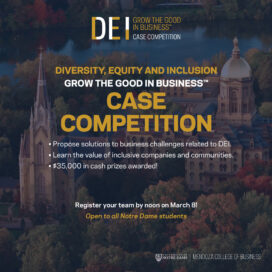Cultural perceptions can be corporate hurdle, author says
Published: May 13, 2005 / Author: Dana Star
The fortune cookie. That crispy, sweet crescent stuffed with a slip of news that for some reason excites you.
That delicacy you associate with Chinese culture.
It’s really an American creation, manufactured in 1918 in California — filled with a Bible message and handed out to the poor. China land never even saw the treat until the early 1990s.
But it’s the Asian culture not to object to such misconceptions, says Jane Hyun, author of “Breaking the Bamboo Ceiling: Career Strategies for Asians.”
Quiet. Reserved. Respectful of authority. Not quick to toot their own horns or speak up about anything. (I bet you didn’t even know May is Asian-American month, did you?)
These are the cultural characteristics and traits that are holding Asian- Americans back in corporate America, says Hyun.
“There is a stereotype that the Asian person is meek or mild, and that kind of perception hurts Asian employees,” she says.
Think about it. How many CEOs do you know who are meek? How many project managers, up-and-comers, boss-kissers stay quiet in meetings?
Asian-Americans often are forgotten in the world of climbing the corporate ladder.
“When they do speak up, or try to be more assertive, they are accused of being too loud and too aggressive,” says Hyun.
The 2000 U.S. Census reported 11.9 million Asians in the country, a 72 percent increase from 1990.
Yet just 1 percent of America’s corporate boards are made up of Asians, according to Catalyst, a research and advisory group that promotes workplace diversity. They are the highest-educated group in the nation, with more than 50 percent of those 25 and older holding undergraduate degrees. Still, they continue to lag in holding high-ranking positions.
The list of Asians who actually have made it to the top of the top is staggeringly low. Andrea Jung is chairwoman and chief executive officer of Avon Products. Jerry Yang is the founder of Yahoo! Carolyn Woo is the dean at the University of Notre Dame’s Mendoza College of Business. John Chen is the CEO of Sybase and a board member of Walt Disney.
And in Indiana, Cummins Inc. recently was named the top company in the nation for Asian-Americans by Diversity Inc. magazine.
The Columbus-based diesel maker was lauded for its commitment to business in China and to advancing, training and mentoring Asians in the workplace.
Jean Hou is one example. The native of Taiwan started at the company 20 years ago as a software engineer.
Today, she is the international director of distribution at Cummins. She also heads the company’s Chinese Affinity Group, which teaches employees about Chinese culture and helps acclimate first-generation Asian immigrants settling in the United States to America’s corporate culture.
Ninety percent of the company’s affinity group are first-generation immigrants. They’re doing quite well at Cummins, so Hou has a different read on the advancement of Asians.
“I feel the company is very fair,” says Hou. “Sometimes in the Asian culture you have to have a special relationship to move upward.”
Hou moved to Columbus and knew no one. She was a stranger in a Midwest diesel engine city.
She made it, and she shies away from the belief that Asian-Americans have it any tougher than anyone else.
“Any nationality can be successful,” she says. “If your family background is a little bit different, then you just need to work extra hard.”
And if you think the Asians are easy to please or not stubborn enough to make it in corporate America, just remember they haven’t given in to the fortune cookie.
Most authentic Chinese restaurants serve free oranges, almond cookies or red bean soup as dessert to Chinese- speaking patrons.
Non-Chinese patrons are served fortune cookies.
/news_and_events/news_articles/article/3754/cultural-perceptions-can-be-corporate-hurdle-author-says




